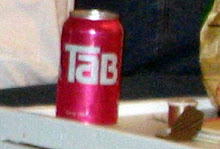Although Cormac McCarthy has appeared on everyone's best of for 2006, I really can't abide him. I tried to read All the Pretty Horses, and gave up. It might be a bit sexist, but writing like this always strikes me as "boy stuff." Once in an American Lit grad class, I refused to read half the syllabus because it was chock full of nothing but boy stuff; I came up with an alternate syllabus, which was approved. In this way, I got to read a book that has stuck with me forever, Susan Warner's The Wide, Wide World--one of the most unintentionally creepy novels ever written . . . and so much better than a guy living in a beaver dam. Anyway, this is why Mr. McCarthy is not on my two book list.
The two books that stuck with me the most in 2006 were also both very creepy, though intentionally so.
Kazuo Ishiguro's Never Let Me Go (really a 2005 book) had one of the most powerful narrative voices (Kathy) I've met in a long time. The combination of boarding school genre novel with horrifying science fiction run through a gothic blender was amazing, especially given that I'm not a sci-fi fan. The book seemed drenched in the bone chilling dampness of an English village, where the grey is brightened only by glimpses of some unattainable sun through a slightly brighter grey. Professionally, I've been reading a bunch of stuff on the posthuman as expressed through genomic art, and it's made me reflect back on Ishiguro's accomplishment at getting the reader to think about what it means to be human--and the relationship between soul and creativity--in a world where the human can be and is reproduced for clinical intent. Can art, and real connection, arise out of a replicated vessel? How do we become who we are? I also loved the Orwellian word play (especially in today's political climate) of "donors" and "carers". The agency suggested by the concept of donation is wonderfully at odds with the reality in the book, and the notion of caring--especially as evinced by Kathy--really problematizes the word. There's an opacity and distance to the entire book that is at once comforting (this is not us) and horrifying (this could be us). If you haven't read Never Let Me Go, please do.
Part 2 in the next post.
Subscribe to:
Post Comments (Atom)


No comments:
Post a Comment